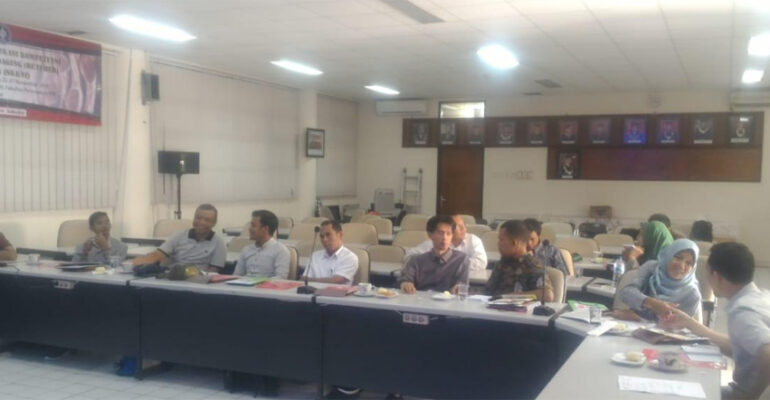IPB University and FLPI Hold Training and Certification of Competence in Meat Cutting

IPB University and the Indonesian Livestock Logistics Forum (FLPI) held Training and Certification of Junior Meat Butcher Competency in accordance with the Indonesian National Work Competency Standards (SKKNI) on Dramaga Campus of IPB (18/11). The training was also supported by the Cinagara Animal Health Training Center (BBPKH) and the Indonesian Animal Husbandry Professional Certification Institute (LSP PI).
Deputy Dean for Resources, Collaboration and Development, Faculty of Animal Husbandry, IPB University, Dr. Rudi Afnan said that the training was to produce competent and certified professional butchers, so that they were competitive with foreign workers. In addition, job opportunities for the professional butcher profession in Indonesia can be filled by domestic human resources.
“This training aims to build the capacity of human resources involved in livestock logistics activities, especially beef cattle. The formulation of SKKNI in the field of meat cutting (butcher) also aims to provide a standard reference on the criteria of work competency standards for meat cutting experts based on carcass topography for the stakeholders in order to realize a professional butcher, “said the IPB University lecturer.
On that occasion, Dr. Henny Nuraini, teaching staff of the Department of Animal Production and Technology, Faculty of Animal Husbandry, IPB University explained, the importance of occupational safety and health (K3).
“Occupational Safety and Health (K3) is an effort to protect the safety and health of workers as long as they work in the company where they work. Work safety is very closely related to the production process of a company. Especially in Indonesia, the country is increasingly developing, the level of work accidents is also growing, “said the lecturer of IPB University.
This IPB University researcher added that the issue of quality assurance of products that are Safe, Healthy, Whole, and Halal (ASUH) related to hygiene sanitation supply systems. In addition, there must be consistent supervision and inspection. For example animal health and meat health examinations at abattoirs (RPH) must have law enforcement and the existence of a veterinary public health system that is responsible for the safety, health and feasibility of food of animal origin.
“To maintain and create ASUH animal origin food, it is necessary to design, develop and implement a food safety and quality system from animal origin. The system is supported by physical facilities and infrastructure, human resources, organization and adequate funding, “said the expert of animal husbandry at IPB University.
The training participants came from a variety of experienced stakeholder workforce from livestock companies in the field of Butcher Junior and had competency-based training certificates in the position of Butcher Junior. (NR)
Keywords: butcher, meat cutting certification, Faculty of Animal Husbandry



